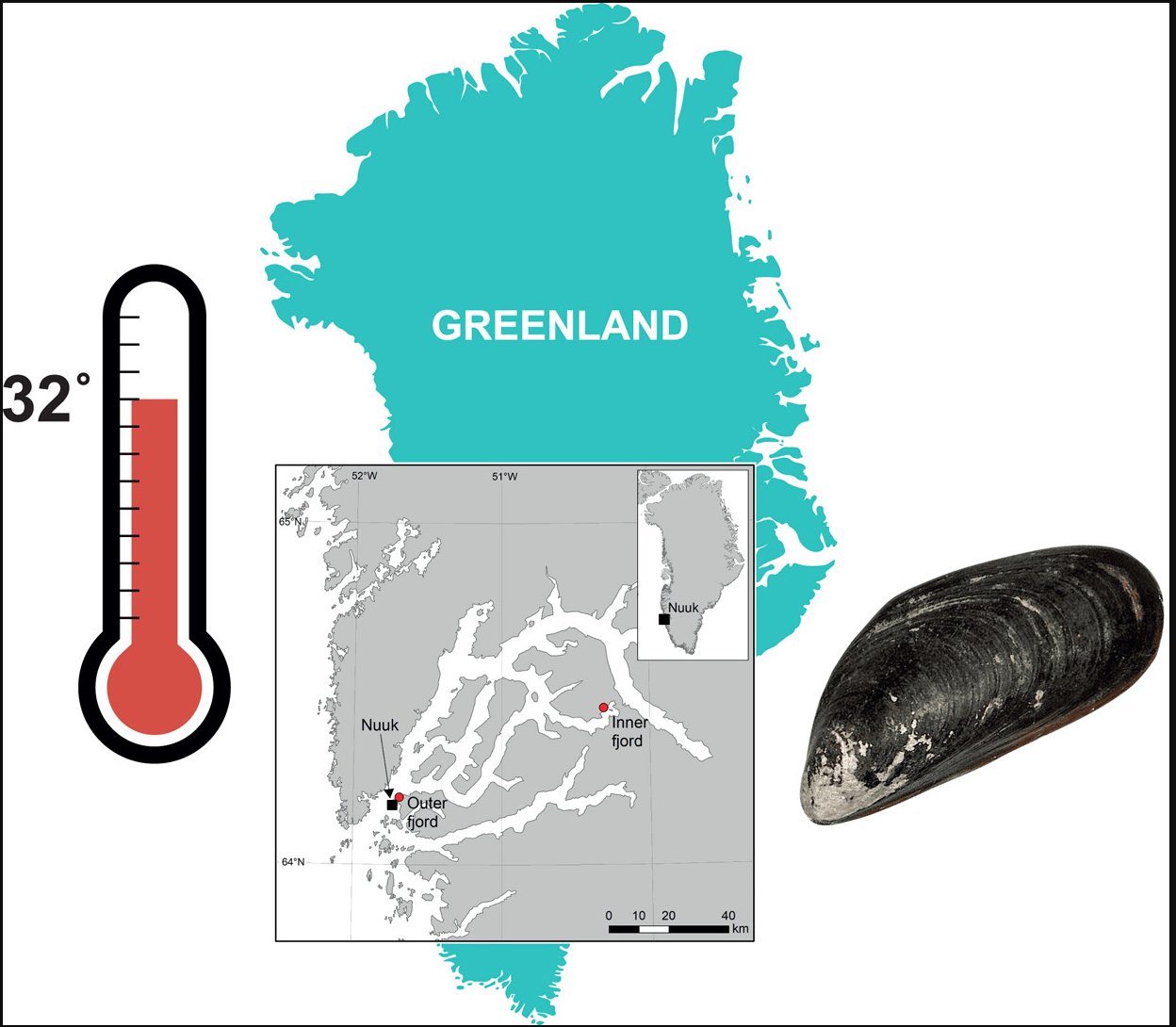Resilience in Greenland intertidal Mytilus: The hidden stress defense
New publication by Melody S. Clark, Lloyd S. Peck, Jakob Thyrring

Abstract:
The Arctic is experiencing particularly rapid rates of warming, consequently invasive boreal species are now able to survive the less extreme Arctic winter temperatures. Whilst persistence of intertidal and terrestrial species in the Arctic is primarily determined by their ability to tolerate the freezing winters, air temperatures in the Arctic summer can reach 36 °C in the intertidal, which is beyond the upper thermal limits of many marine species. This is normally lethal for the conspicuous ecosystem engineer Mytilus edulis. Transcriptomic analyses were undertaken on both in situ collected and experimentally warmed animals to understand whether M. edulis is able to tolerate these very high summer temperatures. Surprisingly there was no significant enrichment for Gene Ontology terms (GO) when comparing the inner and outer fjord intertidal animals with outer fjord subtidal (control) animals, representing animals collected at 27 °C, 19 °C and 3 °C respectively. This lack of differentiation indicated a wide acclimation ability in this species. Conversely, significant enrichment for processes such as signal transduction, cytoskeleton and cellular protein modification was identified in the expression profiles of the 22 °C and 32 °C experimentally heated animals. This difference in gene expression between in situ collected and experimentally warmed animals was almost certainly due to the former being acclimated to a fluctuating, but predictable, temperature regime, which has increased their thermal tolerances. Interestingly, there was no evidence for enrichment of the classical cellular stress response in any of the animals sampled. Identification of a massive expansion of the HSPA12 heat shock protein 70 kDa gene family presented the possibility of these genes acting as intertidal regulators underpinning thermal resilience. This expansion has resulted in a modified cellular stress response, as an evolutionary adaptation to the rigour of the invasive intertidal life style. Thus, M. edulis appear to have considerable capacity to withstand the current rates of Arctic warming, and the very large attendant thermal variation.
